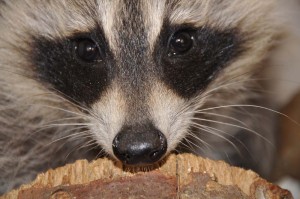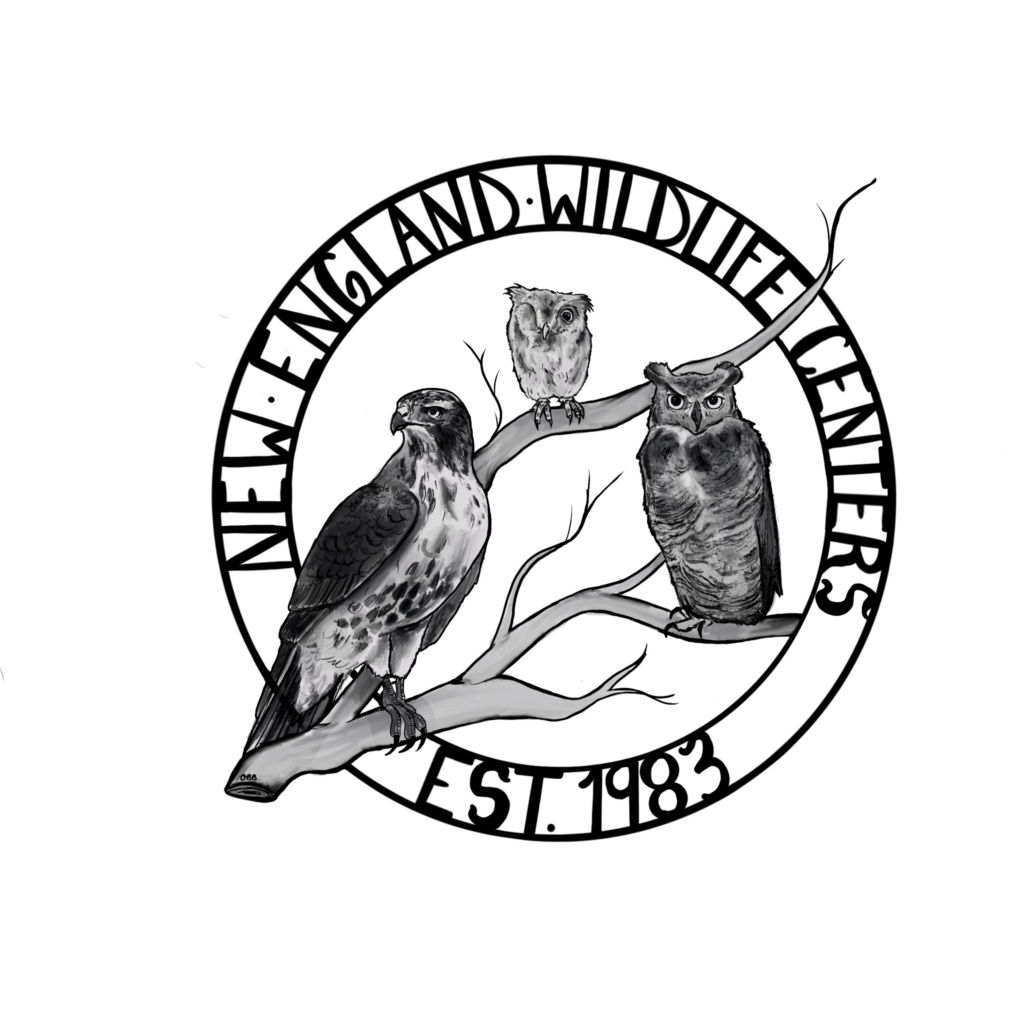 When people ask about the most dangerous parts of working with wild animals at New England Wildlife Center, there are many things that could be discussed. Great Horned Owls with their talons, foxes and coyotes that like to bite, potentially rabid skunks, and even particularly flustered chipmunks can all do damage to us if we let our guards down. One of the less often considered species however is Baylisascaris procyonis, also called the raccoon roundworm.
When people ask about the most dangerous parts of working with wild animals at New England Wildlife Center, there are many things that could be discussed. Great Horned Owls with their talons, foxes and coyotes that like to bite, potentially rabid skunks, and even particularly flustered chipmunks can all do damage to us if we let our guards down. One of the less often considered species however is Baylisascaris procyonis, also called the raccoon roundworm.
B. procyonis is a parasite (specifically a roundworm nematode) found in raccoons.
The adult worms live inside the intestines, and produce large amounts of eggs every day. These eggs then get carried out by the feces. All told, it’s not a huge problem for the raccoons. In fact, in North America the rate of infection in raccoons is generally above 50%, mostly with no serious symptoms. The real problem comes when the eggs are ingested by an animal that is not a raccoon.
In humans for example, the parasite is potentially dangerous. If the eggs are ingested, they do not follow the standard path straight down the intestines. Instead, they can penetrate the gut wall and pass into other types of tissue, eventually making their way up into the brain. This can cause severe neurological symptoms, and even death. This is generally how the parasite responds to being ingested by anything other than a raccoon. One theory for why this might be is that the parasite is attempting to cause neurological issues in its accidental host to make them easier prey for raccoons, as B. procyonis is a raccoon parasite and needs to be in a raccoon to thrive and reproduce.
This is a very rare medical issue, with less than 20 cases reported since 1980. Most people don’t have much reason to come in contact with raccoon feces, where the B. procyonis eggs live. We have to take precautions at NEWC however, since we treat many raccoons every year, and having animals in our hospital means that we clean up a lot of their poop. In order to minimize the risk, we all wear masks and gloves whenever interacting with raccoons, as well as generally being careful about touching them and cleaning their enclosures. No one at NEWC has ever had a problem with B. procyonis, and we will continue our safety procedures to hopefully ensure that no one ever does.

